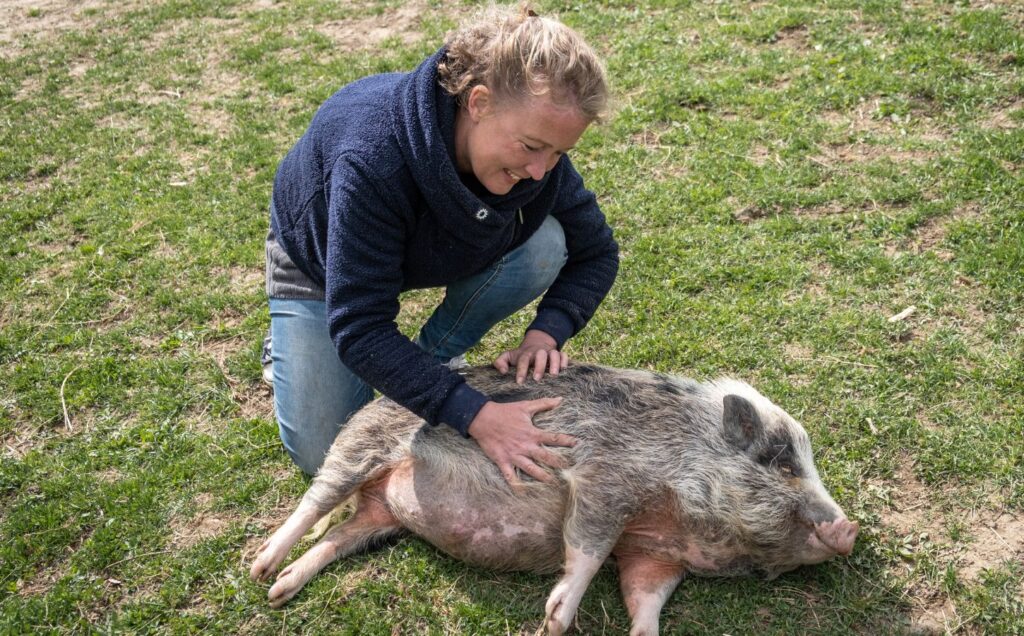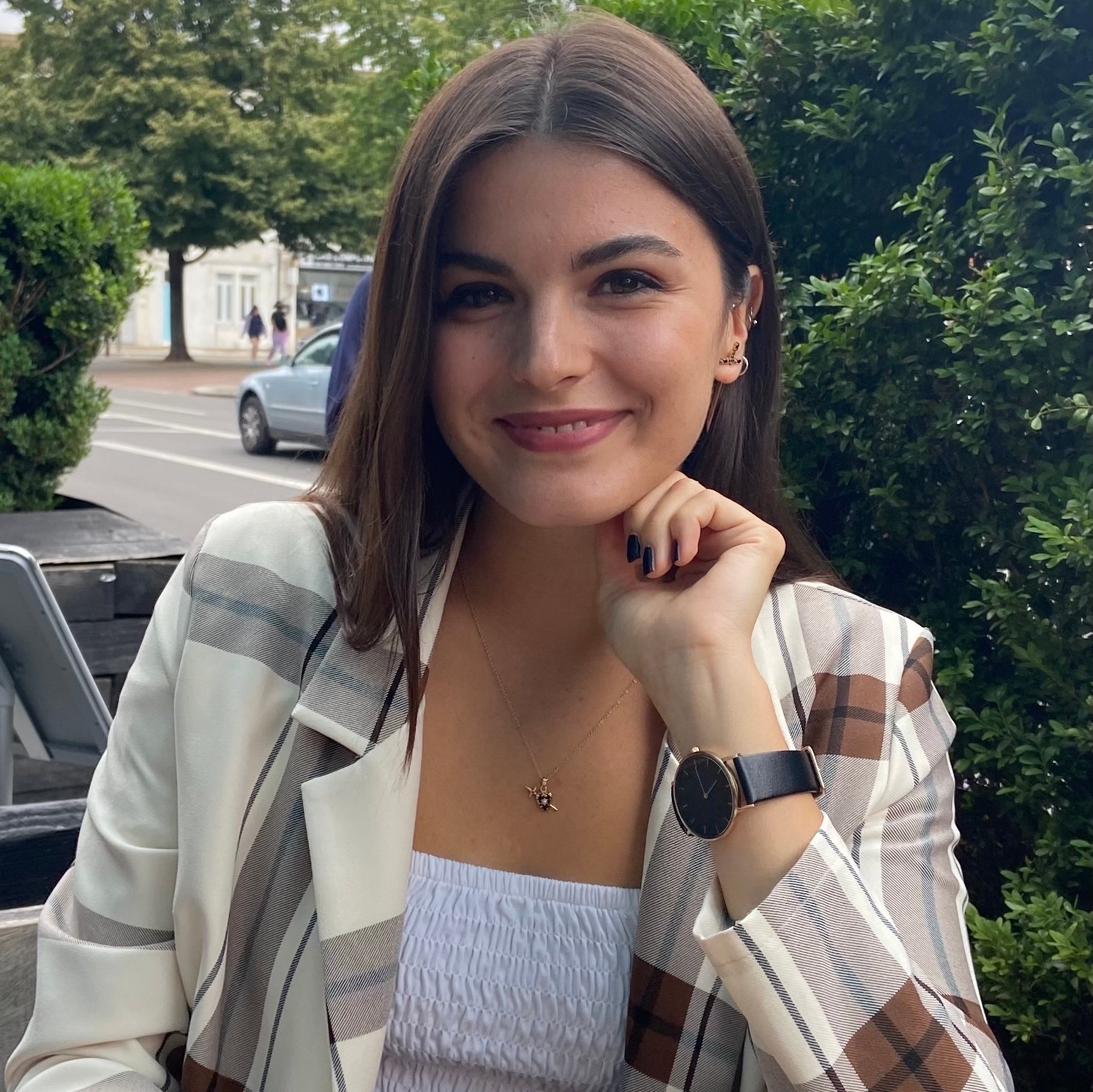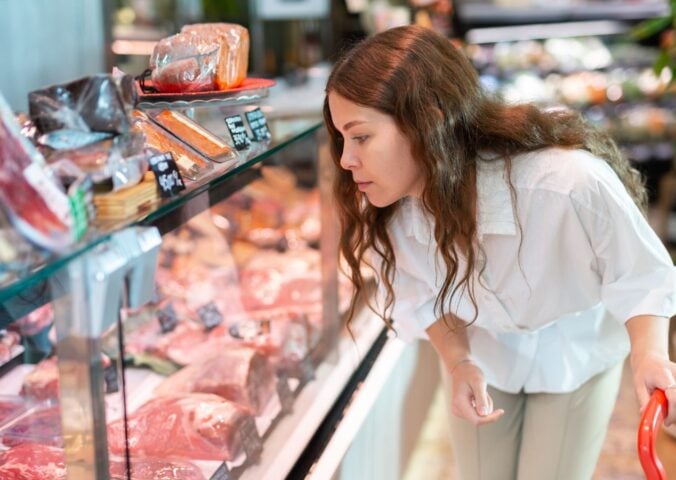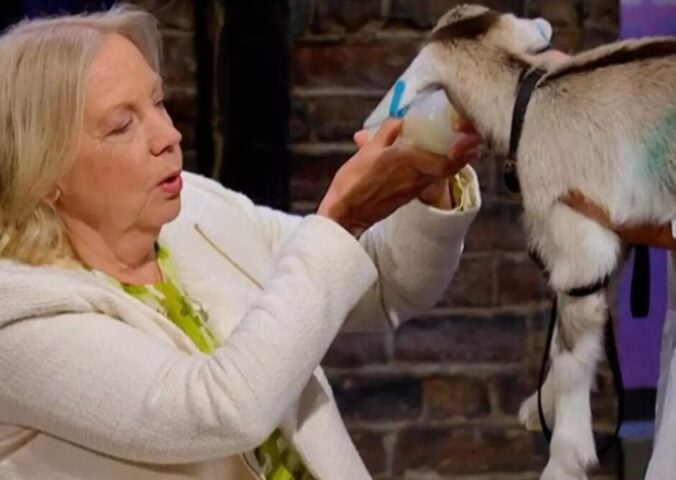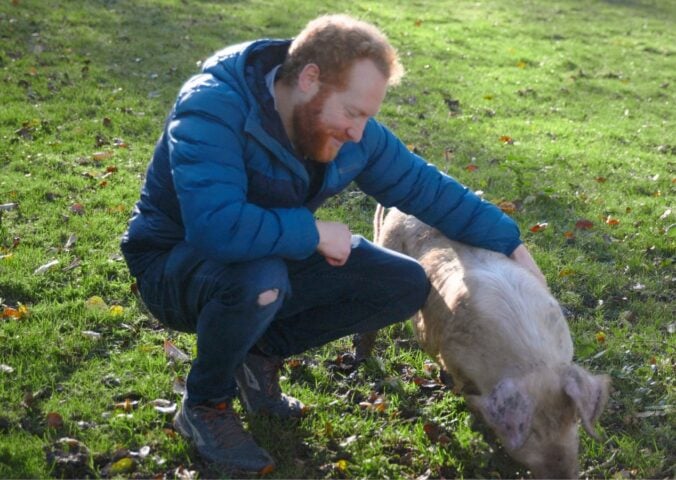Back in 2017, a Swiss vegan farm owner named Sarah Heiligtag received a phone call from a nearby dairy farmer. He’d been growing uneasy about his business, and was struggling to cope with the guilt of raising animals for slaughter. His call came the day after he took another load of his cows to the slaughterhouse, and he asked her if she could help him turn his farm vegan. “I said yes you can do that,” Heiligtag tells Plant Based News. “I didn’t know if it would be true or not, but I just was so intrigued by the idea to change whole farms around.”
Since that day, Heiligtag has helped 125 farms in Switzerland, Austria, and Germany move away from animals. She calls this process a “transfarmation.” Animals will either be moved to sanctuaries, or remain and allowed to live out their natural lives in peace. The new farms will always be entirely vegan.
Farmers mostly get in contact after experiencing the guilt that sometimes comes with their line of work. “They suffer because of what they have to do to animals,” she says. “It can be that they have been suffering for years and years and years and didn’t see a way out, but it can also happen that they look into one animal’s eyes and suddenly realize there’s someone behind these eyes.”
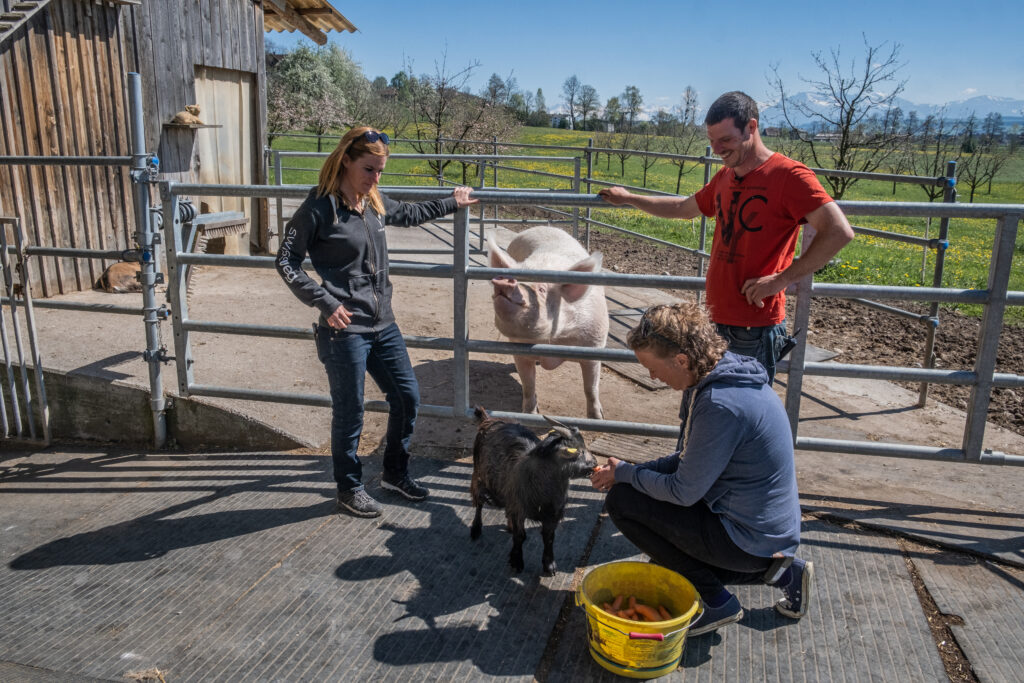
The transfarmation
A transfarmation usually begins with a phone call. Heiligtag will find out as much information as possible about the farm and its potential to be changed. She’ll then visit the farm and check out the surroundings, find out their situation, and look into whether they’ll need financial support. “We talk about what they would want to do if they were completely free without boundaries,” she says. “Do they have any ideas of what they could do? And some do. Some really have dreams.”
The farms will adopt plant-based farming methods, often adapting to grow oats, chickpeas, lentils, fruit, and legumes. Farms like these help the Swiss population to eat more local plant foods, as these tend to be imported into the country. Some farms will also open sanctuaries and invite schools to visit and learn about the transfarmation process, while others will host B&Bs on their premises.
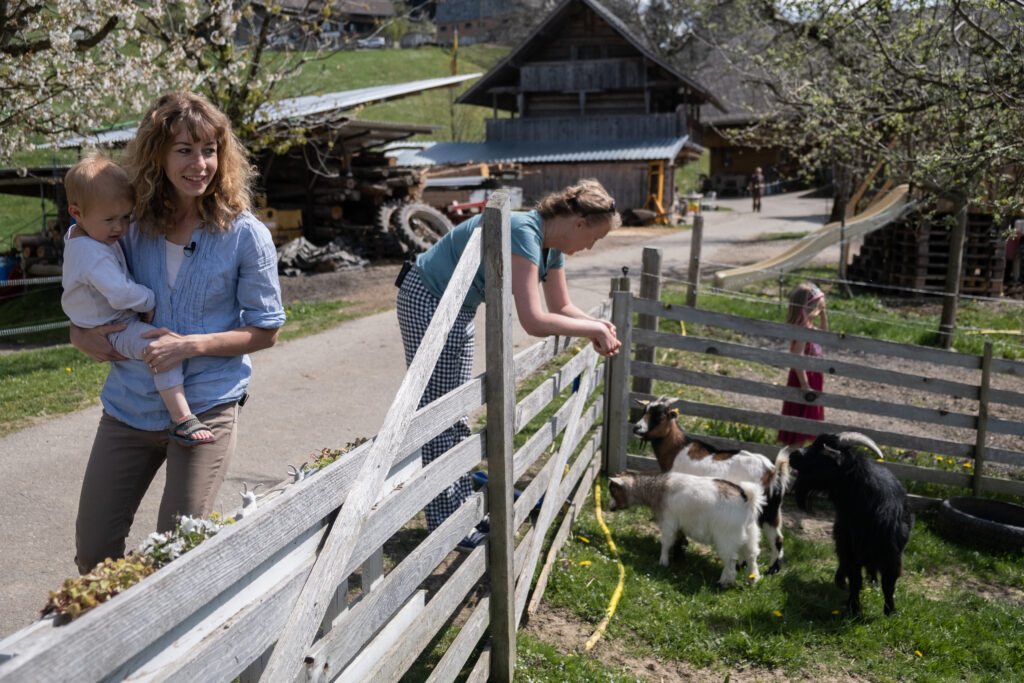
‘A new normal’
Heiligtag is a long-term vegan and animal rights activist, and spent years doing undercover work in slaughterhouses before helping farms transfarm. “I really wanted to fight the system and stop it until I realized it probably will break me because it was so horrible, what I saw every day,” she says. Transfarmations are, for Heiligtag, a new form of activism that sees her change, rather than go against, the agricultural system. “I had this dream to work for a new normal. Not only against what’s happening, but also to show that it’s possible to be different, that we can do something for a peaceful world.”
Heiligtag will help any animal farm with potential to be transfarmed, and has worked with those housing pigs, dairy cows, chickens, and more. She will only, however, work with farmers prepared to move away from livestock completely. “I get asked a lot if I would help reduce the animals a little bit, or change them from cows to sheep, and I clearly say no,” she says. “For me change is really about getting out of animal agriculture completely. So the end and the future is always vegan agriculture.”
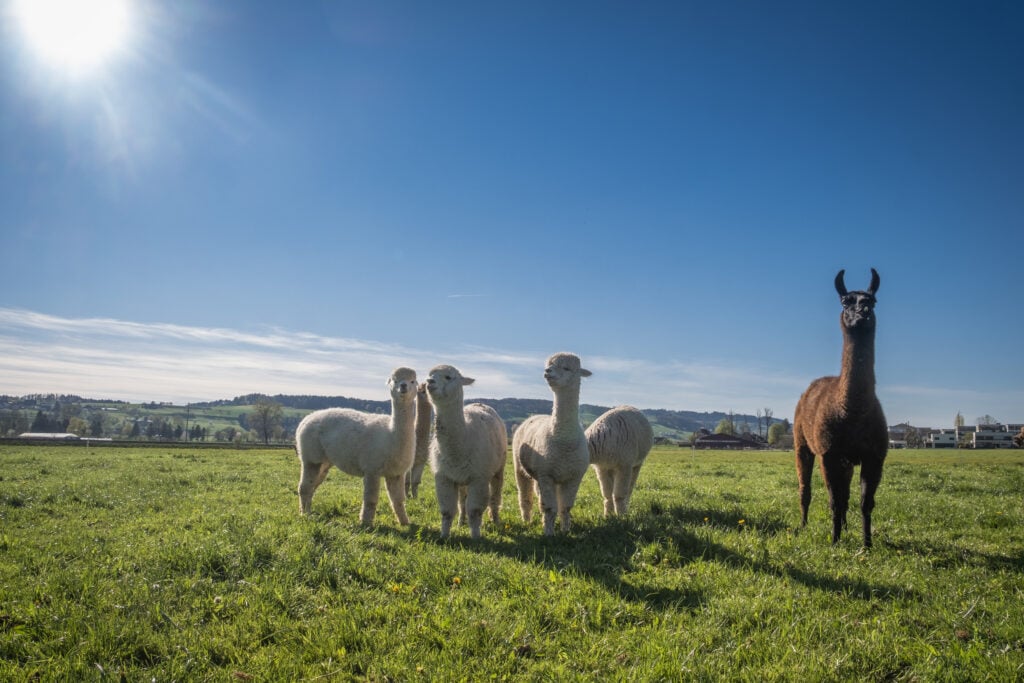
The myth of ‘good’ animal farms
Switzerland, where Heiligtag works, has among the best “animal welfare” laws in the world. She also often works with small and family-run farms, those the general public often deem as “good” (as opposed to “bad” factory farms). This means that, by anyone’s logic, the animal farms she transfarms would be among the best and most ethical in the world.
Why, then, are their owners carrying so much guilt?
“It’s not possible to produce animal products without exploiting animals,” she says. “Even those that look beautiful, even those that you think are typical Heidi Swiss farms, they still have to produce milk. You have to separate the calf from the mom. It’s a long ongoing suffering. It doesn’t matter if it’s a hundred cows or a thousand cows. It’s always horrible and it’s always really, really painful for the animals.”
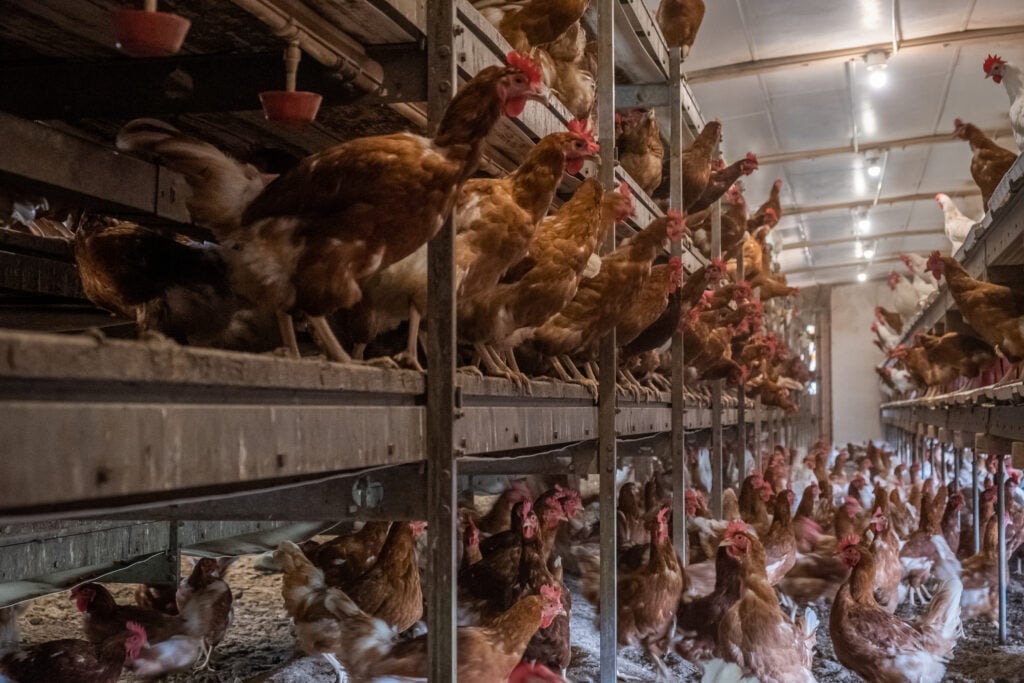
Challenges of transfarmations
While she has successfully helped a huge number of farmers, not every farm that wants to has potential to be transfarmed. “The difficult thing for me is when I know I can’t rescue all of these animals that I see,” she says. “If I’m not sure if this farm is really ready for change, and I see all these animals looking at me. As soon as I see an animal I feel like I want to help, and leaving them behind is very hard.”
The global vegan movement is growing, bringing with it calls around the world for farmers to adapt and adopt animal-free methods. While many farmers are open and receptive to change, some have responded to changing attitudes with a fresh – and sometimes dangerous – determination to maintain the status quo. “There have been moments where there has been a lot of aggression,” says Heiligtag. “For example by a dad who is against the changing of his son’s farm. It can get quite emotional or even violent. I have to set my boundaries, and work out if I should go there or not. Once a farmer explicitly killed an animal in front of my eyes to show me that he’s the winner. So I see stuff that kind of haunts me sometimes, but that’s just part of it.”
Heiligtag says, however, that such aggressive behavior is rare. “In general, I try to be kind, to understand everyone. I don’t want to harm anybody, I just want to stop animal suffering, and that’s what I try to say. I’m not going to places to say ‘you need to change,’ but if someone calls me, I’m going there.”
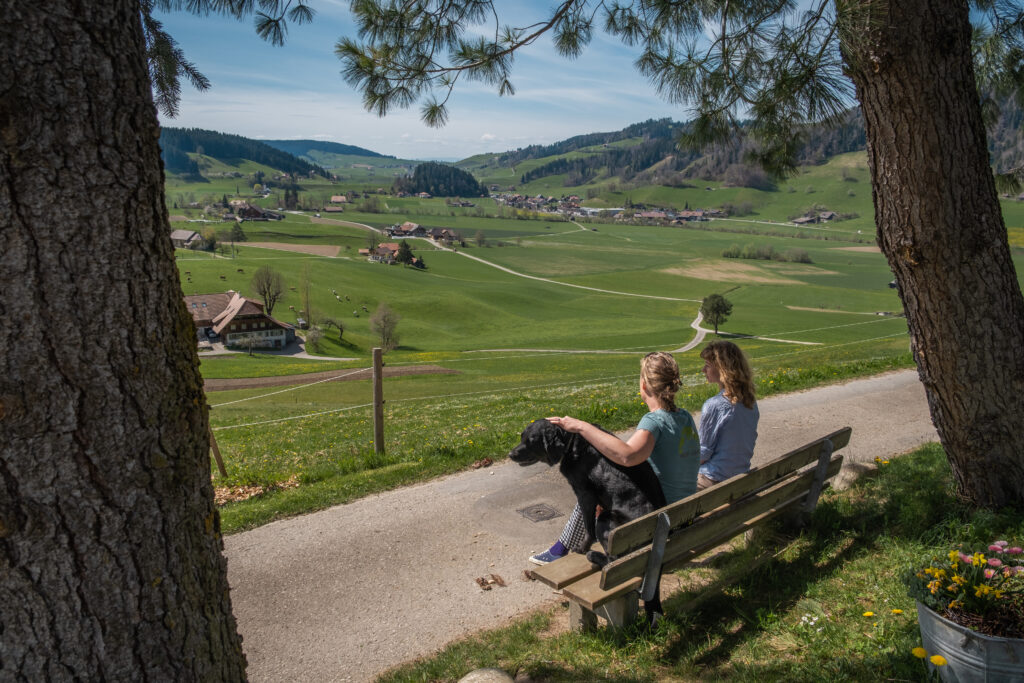
Challenges for farmers
The biggest boundary for those hoping to transfarm, says Heiligtag, is the social environment they live in, as well as potential judgment from other farmers. “Being brave enough to stand there and say ‘yes I’m changing,’ despite what everyone will say.”
The beginning of the transfarmation tends to be the hardest part, when farmers are, as Heiligtag puts it, no longer “in the club” with their colleagues. “But once they see that it’s actually working this changes,” she says. “Now the whole farm looks much more beautiful, and people come and say ‘wow, what you’re doing here is brilliant.’”
